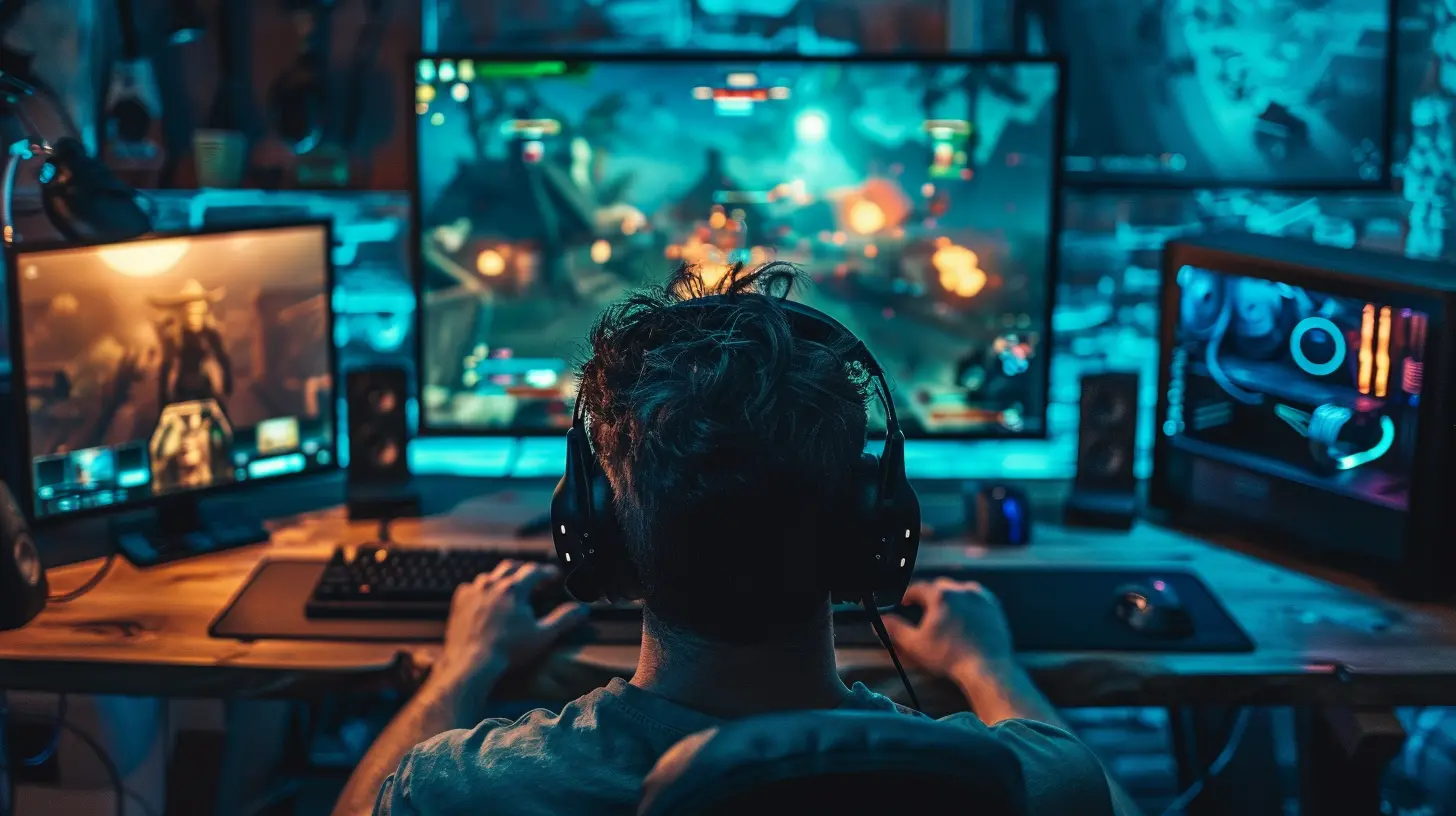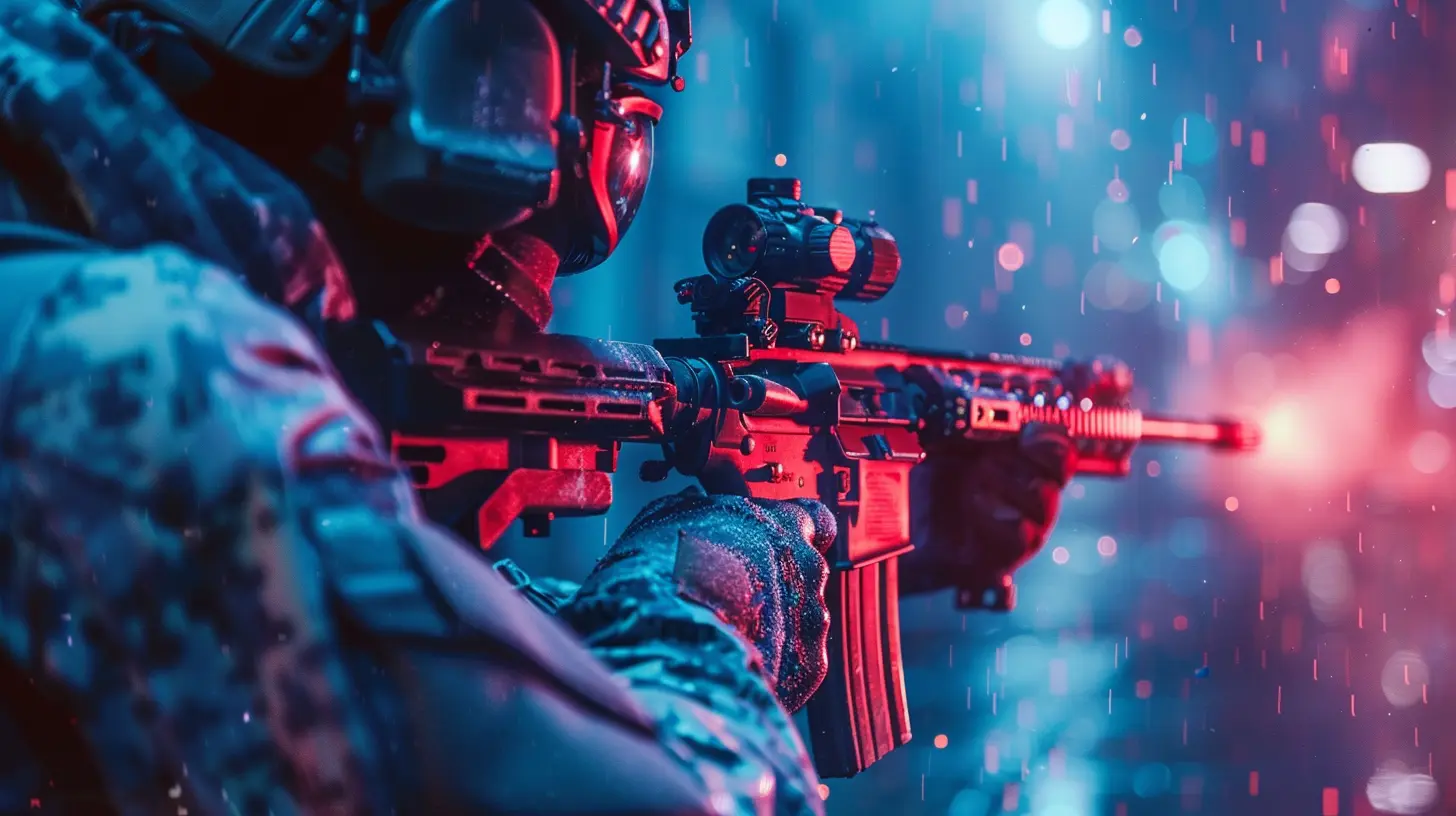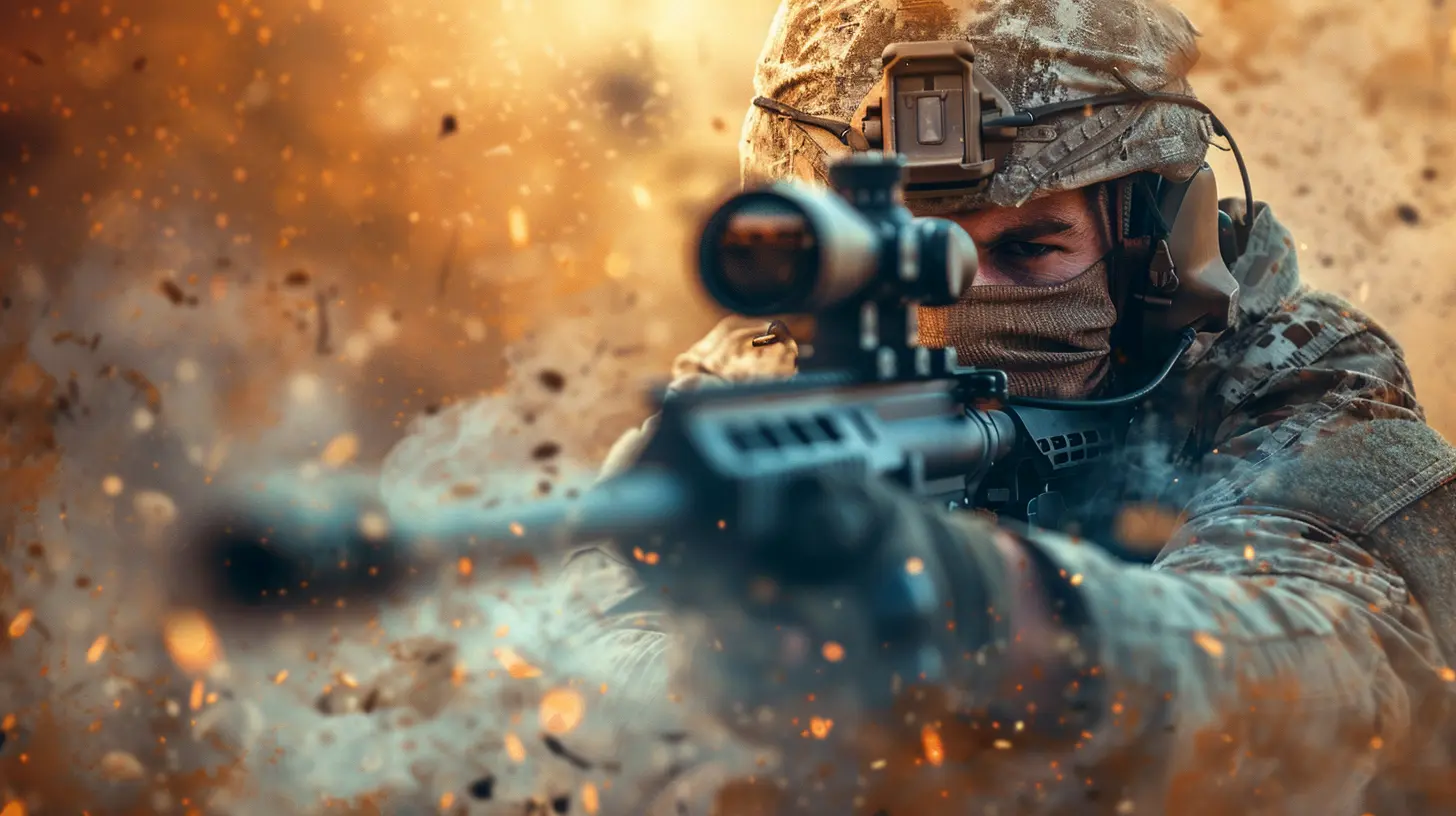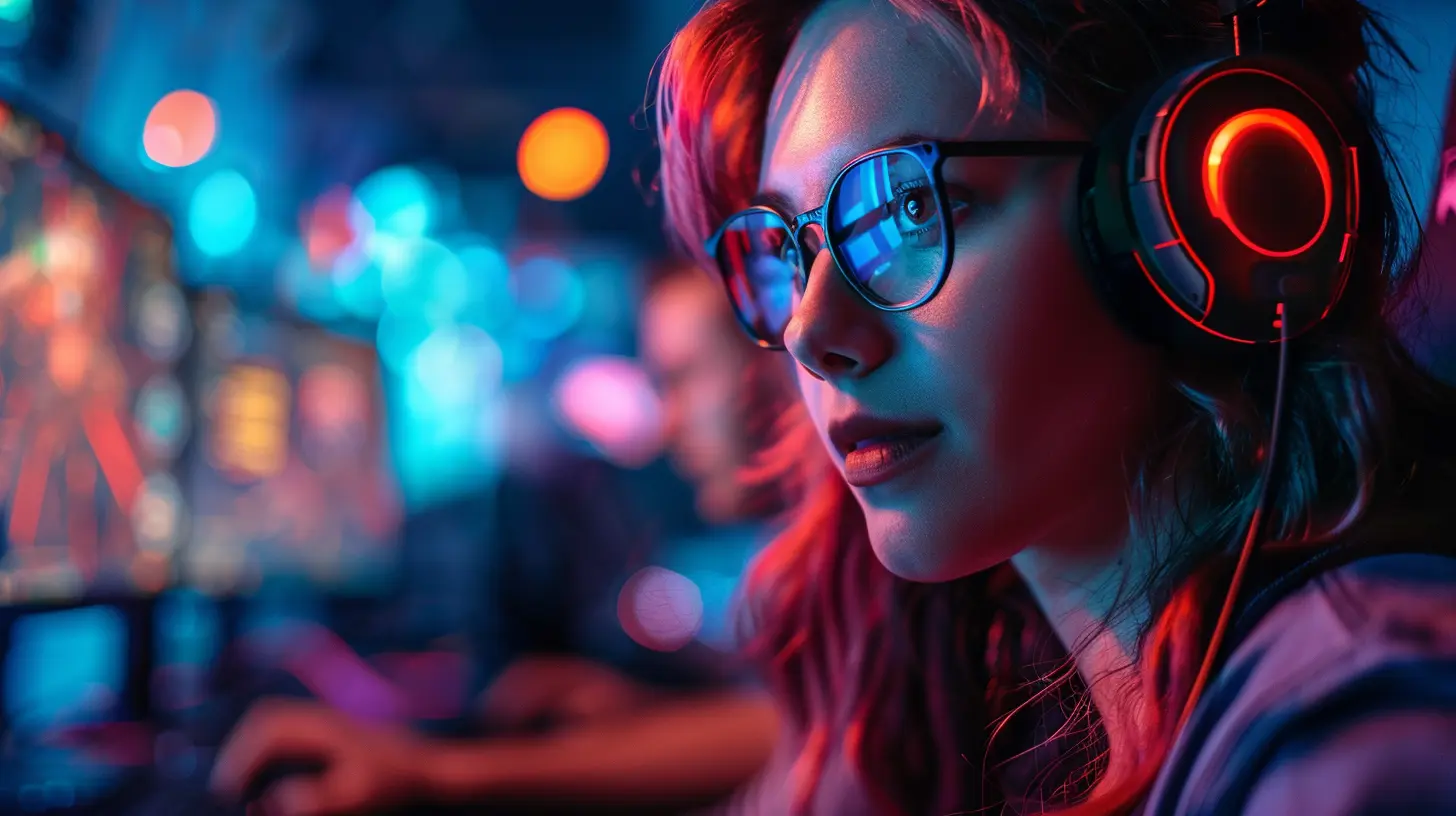How to Analyze Your Gameplay for Improvement
1 August 2025
Ever felt like you're putting in the hours, grinding day after day, but still not seeing real progress in your gameplay? Yeah—been there. We all hit that frustrating wall where it seems like no matter how much we play, we’re stuck in the same rank, losing the same fights, or missing those game-changing plays. The good news? You’re probably better than you think—you're just not looking at the bigger picture.
That’s where analyzing your gameplay comes in clutch. It's like watching the replay of your life and figuring out where you keep tripping over your own shoelaces. Let’s break this down together and see how you can use game analysis to level up both your skills and your confidence.
Why Bother with Gameplay Analysis?
Before we dive into the how-to, let’s talk about the why. You might think, “I already know what I did wrong—why review it again?” Well, memory can be a bit wonky. You might remember the loss, but not the micro-decisions that led to it.Analyzing your gameplay helps you:
- Identify repeating mistakes.
- Spot patterns in your decision-making.
- Understand your strengths (yes, you’ve got ‘em).
- Track improvements over time.
- Get more intentional with your practice.
Think of it like sports. Pro athletes don’t just train—they watch replays of their games, with coaches calling out every detail. That’s because improvement isn’t just about effort—it’s about strategy.
Record Your Gameplay (Yes, Hit That Record Button)
Alright, first things first: you’re gonna need footage. If you’re not recording your games yet, you’re leaving gold on the table. Tools like OBS Studio, NVIDIA ShadowPlay, Xbox Game Bar, or built-in replay systems in games like League of Legends, Fortnite, and VALORANT are your best friends here.Make it a habit to save a few matches each session—especially the ones that felt off or, on the flip side, felt amazing. There's value in reviewing both the wins and the losses.
Watch Yourself Like a Stranger Would
Now, when you sit down to watch your gameplay, don’t just skim through. Watch with intention. Pretend you’re watching someone else. This helps you keep the emotional baggage out of it—you’re not judging yourself; you're evaluating a player.Ask yourself:
- Where did I make key decisions?
- What were my options at that moment?
- Did I react out of panic or logic?
- Was my positioning helping or hurting me?
- Was I communicating effectively?
Seeing it from a third-person lens really helps you be more objective. It’s less "why did I suck there?" and more "what could this player have done differently?"
Break Down the Matches Bit by Bit
You don’t need to watch the entire match in one go like it’s a Netflix binge. Break it into chunks. Focus on early game, mid-game, and late game, analyzing how your choices evolved.Here’s a quick breakdown to guide you:
1. Opening Phase / Early Game
- Did you enter the match prepared?- Were your early decisions proactive or reactive?
- Were you efficient (e.g. farming, rotating, looting)?
2. Mid-Game
- How was your map awareness?- Did you take fights you shouldn’t have?
- Were you rotating with purpose or just wandering?
3. Final Moments / Late Game
- Did you make smart macro decisions?- Were you quick to adapt strategies?
- How did you handle high-pressure situations?
Watching these phases separately helps you pinpoint when things start to unravel (or click), so you know exactly where to work.
Focus on Micro and Macro Skills
In gaming, everything boils down to two main skill types—micro and macro.Micro Skills = Mechanics
This includes:- Aiming
- Building
- Movement
- Timing abilities
- Reaction time
Watching your gameplay can show you if you're missing shots because of poor crosshair placement or panicking under pressure.
Macro Skills = Strategy
These are your big-picture skills:- Positioning
- Rotations
- Objective control
- Team communication
- Reading enemy plays
Analyzing your matches helps you understand if you’re dying because of bad aim (micro) or because you were out of position to begin with (macro). It's usually the latter, by the way.
Use the Pause Button (A Lot)
One trick I personally swear by is pausing at key moments. Watch what happened, pause, and ask yourself, “What else could I do here?” Think of it like a choose-your-own-adventure game. Then, unpause and see what you actually did.This practice gets your brain wired to think ahead. It’s like mental weightlifting.
Try it during:
- 1v1 duels
- Moments before a group fight
- When approaching an objective
- After respawning and deciding where to go
Over time, you’ll start doing this critical thinking in real-time.
Compare Your Gameplay to Top Players
Another smart move: watch pros or high-ranked players in your game of choice. But don’t just watch and admire—compare.Ask:
- How do they position compared to me?
- What decisions are they making that I don’t?
- How fast are they reacting in similar scenarios?
- What's their thought process in difficult fights?
Try to find gameplay from players who use the same role, character, or weapon you do. That makes the comparison more apples-to-apples.
This isn’t about copying them—it’s about understanding why their decisions work and incorporating that logic into your own game.
Keep a Gameplay Journal (Yes, Like Homework, But Cooler)
Here’s something that serious players do but rarely talk about: journaling. You don’t need a fancy bullet journal or anything, just grab a notepad or Google Doc.After each session, write down:
- 1 thing that went well
- 1 mistake you want to avoid next time
- A short plan to improve it
Example:
> "I kept getting flanked mid-round. Need to check the mini-map more and focus on sound cues."
It takes 2 minutes, but it snowballs into laser-sharp awareness over time.
Don’t Just Analyze Losses—Review Wins Too
This might sound weird but analyzing your wins can be more important.Why?
Because sometimes you win despite doing a bunch of stuff wrong. If you don’t catch that, you may start forming bad habits that only show their ugly head later on.
Ask yourself:
- Did I win because of luck?
- What decisions actually created the advantage?
- Could I have done even better?
Winning doesn’t always mean you're improving. So make sure you treat every game as a learning opportunity—regardless of the outcome.
Use Third-Party Tools (When It Makes Sense)
Depending on the game, there are insane tools out there to give you stats you wouldn’t catch yourself.Some examples:
- Overwatch / VALORANT / CS:GO: Use tools like Aim Lab or Tracker.gg
- League of Legends: Tools like OP.GG or Mobalytics
- Fortnite: Fortnite Tracker and replay editor
- Call of Duty: CoD Tracker and in-game heatmaps
These give you insights like kill/death ratios in specific maps, accuracy percentages, heat maps of where you die the most—you name it.
But remember: these are just numbers. The real magic still happens in your own decision-making.
Ask for Feedback (Yes, From Real People)
Sometimes we’re just too close to our own gameplay to see the mistakes. That’s where friends, teammates, or online communities can lend a big hand.Try posting a short clip of your gameplay in relevant subreddits, Discord servers, or forums. Ask specific questions like:
- "Was my rotation here risky?"
- "Could I have played this 1v2 better?"
- "Any suggestions on my crosshair placement?"
You’ll be surprised how willing people are to help if you’re genuinely trying to improve.
Stay Consistent (And Be Patient)
Here’s the catch: this isn’t a one-time process. Improvement takes time, and analyzing your gameplay should be part of your regular gaming routine, not just something you do after a losing streak.Set a manageable goal for yourself. Maybe one gameplay review session after every 5 matches. Or one 20-minute review per gaming day.
Keep it sustainable, and don’t beat yourself up over mistakes. They’re literally the blueprint to your growth.
Remember, every esports pro once started exactly where you are right now—confused, curious, and just trying to get better.
Final Thought: Play Smarter, Not Just Harder
Grinding endless hours will definitely give you some improvement, sure. But if you want to really level up, you've got to start practicing with intention. And that starts with understanding what you’re doing wrong—and right.Analyzing your gameplay is like holding a mirror to your skills. Tough at times, but ultimately worth it. You’ll uncover habits, patterns, and missed opportunities that could be the key to your next big performance jump.
So go on—watch your gameplay like a coach, get brutally honest, and take notes. Your future self (and your higher rank) will thank you.
all images in this post were generated using AI tools
Category:
Shooter GamesAuthor:

Aurora Sharpe
Discussion
rate this article
2 comments
Courtney Fields
This article effectively highlights the importance of self-analysis in gaming. However, it could delve deeper into specific metrics and tools that enhance this process, offering readers actionable insights for tangible improvement in their gameplay.
December 26, 2025 at 4:07 PM

Aurora Sharpe
Thank you for your feedback! I appreciate your suggestion and will consider incorporating specific metrics and tools for deeper insights in future articles.
Raegan Fletcher
Reflecting on your gameplay is key; embrace both victories and mistakes as essential steps toward growth.
August 13, 2025 at 3:32 PM

Aurora Sharpe
Absolutely! Reflecting on both successes and setbacks is crucial for continuous improvement in gameplay. Each experience offers valuable insights that can enhance your skills.

